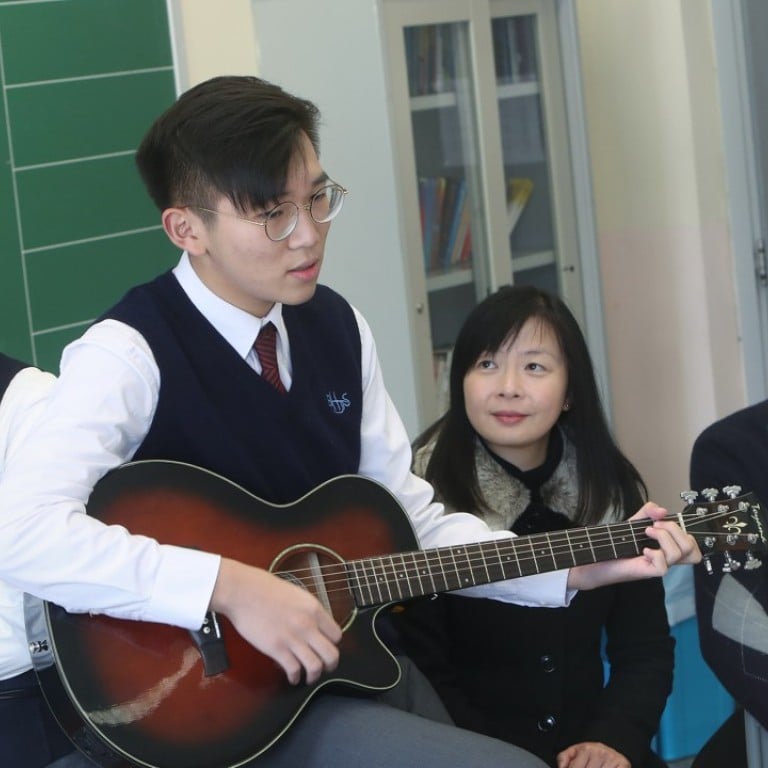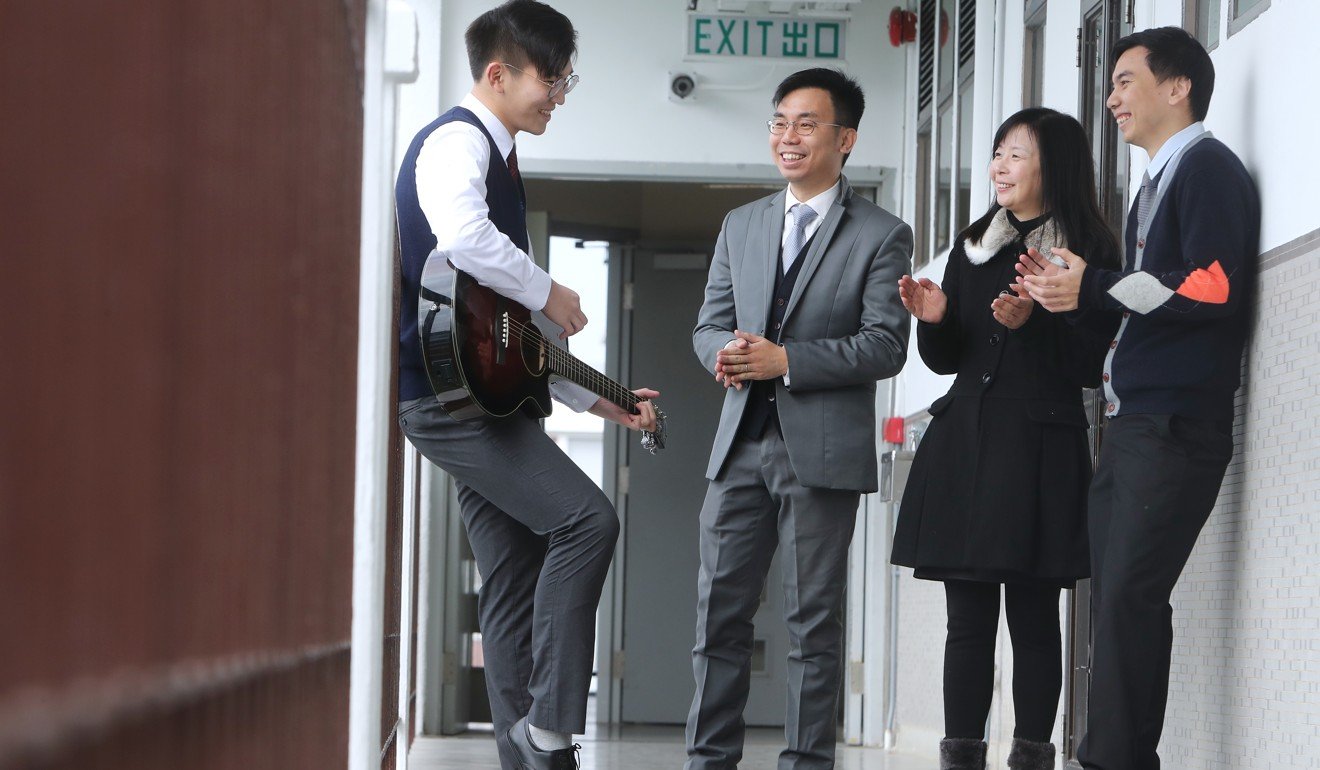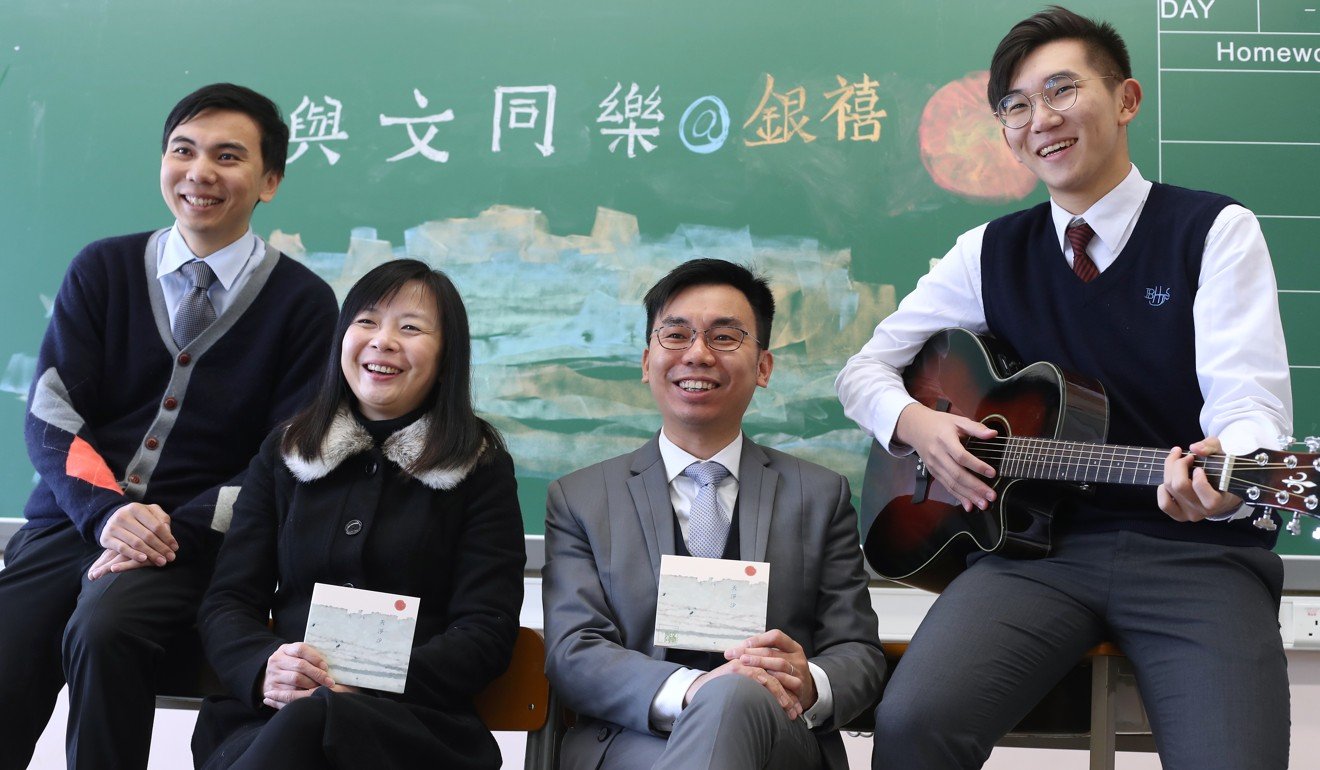
It’s dubbed the ‘exam paper of death’ but two Hongkongers have composed a way to pass it – Canto-pop
Vice-principal and student from Bishop Hall Jubilee School use passion for music to turn centuries-old texts into catchy Canto-pop tunes that serve as study guides
Dubbed the “paper of death”, the Diploma of Secondary Education Chinese exam is often regarded a major obstacle for those who wish to enter university.
Candidates of this year’s secondary school mandatory exam will face an additional challenge: being tested on 12 prescribed classical Chinese texts, including those by poets such as Li Bai and Wang Wei, with the Education Bureau announcing the change in 2015 for the Secondary Four students.
Long hours, too much homework and stressed pupils – is there a solution to Hong Kong’s education system nightmare?
The bureau said the move was intended to allow students to understand the literary meaning and grasp the cultural connotations by memorising the classical works so as to further enhance the literacy of Chinese.

But with these literary works written centuries ago, the language differs greatly from what is currently used today, so it is a challenge for students to memorise these texts, let alone have a deep understanding and being tested on them.
To help Hong Kong pupils increase interest in these works, so as to make studying about them easier, Bishop Hall Jubilee School’s vice-principal Kwan Chi-kuen came up with the idea of turning these texts into something that appealed to students more – Canto-pop songs.
Hong Kong’s exam obsession must end if we are to bring the best out of all our young people
A music lover himself, Kwan began composing the tunes for the works last year and engaged Wan Tsz-kin, who was then a Form Four student, to handle the arrangement and singing.
Over the past six months, they have produced five songs, including two prescribed DSE texts. One of them is by Li, which roughly translates to Drinking Alone Under the Moon, and the other is by Wang, which roughly translates to Life in the Mountains on an Autumn Evening.
Wan, now in Form Five, said the experience of producing the song cultivated a stronger interest for Chinese language in him.
Li Ka Shing Foundation to give HK$5,000 each to DSE candidates in remote districts
“For this project, we had to do research and put ourselves in the shoes of the characters, so as to produce music that brought out the meaning of the poems,” he said.
“For example, if a part is more tranquil, we match it with the music, and we do the same when another part is more lively.”

This, he said, would help students understand the texts.
Young Lai-ki, a Form Four student from Bishop Hall Jubilee School, said the songs had increased his interests in the poems and helped him memorise them.
Chan Yik-yeung, a Chinese teacher in the school, was engaged as a consultant for the project to ensure that the Cantonese words were pronounced accurately and that the songs matched the mood of the texts.
Tough at the top: how three Hong Kong students overcame problems to excel in their exams
As Cantonese has nine tones, Chan said the team must be careful to ensure that the pronunciation is accurate in composing songs in the language.
Chan said he observed his pupils had more interest in learning the texts as they became more impressionable.
Besides the DSE poems, Kwan and Wan also made songs for classical texts in other dynasties, including some recommended ones for primary school pupils. Kwan said he was inspired to do so after looking at his daughter’s textbooks, adding she was now enjoying singing those songs.
Most of the completed songs are uploaded on a YouTube channel, named Music Poetic HK. Kwan said he hoped the songs would help students from other schools and also increase their interest in Chinese literature. The pair wish to produce more of such songs in the future.

